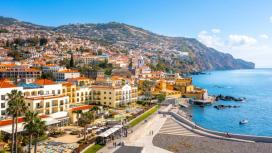Blog • Published on:April 2, 2025 | Updated on:April 3, 2025 • 23 Min
A Guide to Greek Residence Permits for Investors, Professionals and Families in 2025
In 2025, Greece is no longer just a retirement dream or a low-cost beach escape. It has become one of Europe’s most strategic choices for acquiring long-term residence.
Whether you’re an investor seeking EU access, a professional escaping high taxes, or a parent looking for affordable education in Europe, Greece now offers a surprisingly flexible set of residence pathways.
Now, Greece offers over a dozen types of residence permits, ranging from investment-based stays to work, study, and family reunification routes. Some lead to citizenship in as little as 3–7 years. Others are designed for people who just want a safe EU fallback with minimal obligations.
We’ll walk you through every major permit available in Greece today: what it costs, who qualifies, how it’s processed, and where it leads long term. If you’re comparing options in the EU, this guide will help you understand what’s realistic, and what’s actually worth it.
Greek Residence Permits Full Overview
Greek Residence Permit System Eligibility and Application Basics
Greece’s residence permit system is built around specific categories, each tied to the applicant’s reason for moving. Now, the system is more structured than ever, with digital tools in place for tracking, submitting, and renewing applications.
That said, local interpretation still varies between regions, and knowing the permit types is just the beginning.
Basic Eligibility Criteria (Applies Across Most Categories)
While every permit type has specific requirements, there are a few baseline criteria that apply to almost all residence permit applications in Greece:
- Valid passport with at least 6–12 months of validity
- Proof of legal entry into Greece or the Schengen Area
- Sufficient financial resources (amount varies by category)
- Private or public health insurance valid in Greece
- Clean criminal record (from country of origin and/or Greece)
Some permits, like the Digital Nomad Visa or Golden Visa, may waive certain requirements, like Greek language skills or employment ties, but nearly all require applicants to demonstrate economic self-sufficiency and a legitimate reason to stay.
How the Residence Permit Application Works
Most residency applications follow a hybrid process: part digital, part in-person. Here’s the standard flow:
1. Collect Required Documents
Including passport, photos, proof of funds, insurance, and any category-specific documents (like a property title or employment contract).
2. Submit Application
Either at a Greek consulate (if applying from abroad) or the local immigration office (if applying from inside Greece).
3. Receive Filing Receipt
You’ll receive a temporary proof-of-application paper (commonly called the blue certificate), which serves as legal proof of residence during processing.
4. Provide Biometric Data
Fingerprints and a digital photo are taken during your appointment.
5. Receive Residence Permit Card
If approved, you’ll get your biometric residence permit (BRP) card, typically valid for 1–5 years depending on your permit type.
Greece Golden Visa Program: Investment Rules, Benefits, and Common Pitfalls
Greece’s Golden Visa remains one of the most popular investment-based residency programs in Europe. But in 2025, it’s no longer the €250,000 real estate shortcut that investors were rushing into a few years ago.
Recent rule changes have reshaped the market, adding more weight to the location and type of property being acquired.
Here’s what’s changed, what remains attractive, and what to be careful about.
Golden Visa Investment Requirements
The most important update is the two-tiered property threshold introduced by Greek lawmakers and officially in effect since mid-2024.
- €800,000 minimum investment now applies to purchases in high-demand zones like central Athens, Thessaloniki, Mykonos, and Santorini. These are the areas where short-term rentals and speculative buying had pushed local affordability to a breaking point.
- €400,000 investment applies for all other regions
- The €250,000 threshold still exists, but for restoration
What counts as an eligible investment:
- Purchase of one or more residential properties that meet or exceed the minimum threshold
- Lease agreements for hotel stays or tourist residences with a duration of at least 10 years
- Select commercial real estate in mixed-use areas (though these require extra due diligence)
- Investment in real estate development funds or REICs (regulated real estate investment companies)
Renovations, partial ownership, or properties under construction do not qualify unless strict valuation and completion requirements are met.
That’s a common point of confusion, and a source of rejection for many first-time applicants.
What the Golden Visa Actually Gives You
Residency is granted for five years, with the right to renew indefinitely. You don’t have to live in Greece to keep the permit active, which makes this especially appealing for families looking for EU backup plans, or investors based in the Gulf, Asia, or Latin America.
Greece ranks among the most accessible and strategic countries in Europe for securing permanent residency. Read the full overview here.
You can include your spouse, dependent children up to age 21, and even both sets of parents in your initial application, without any additional investment required.
You also gain visa-free access to all 29 Schengen countries, including France, Germany, and Spain.
But it’s important to understand that this doesn’t make you a tax resident of Greece, and it does not allow you to work for a Greek company. You can earn rental income from your investment but not take up employment.
Application Timeline and Structure
The Golden Visa process is relatively streamlined by EU standards. Most applicants appoint a legal representative in Greece who handles everything remotely, from getting your tax number to signing on your behalf at the notary.
Once your investment is completed and the paperwork is submitted, a temporary residence certificate is issued. This acts as your legal residency while the application is being processed.
In major cities like Athens, approvals can take anywhere from three to six weeks. Delays are still common in smaller municipalities, especially during peak tourism or summer months.
Biometric data must be submitted in person, but most of the rest can be done remotely via power of attorney.
Renewing the Golden Visa
Renewals happen every five years, as long as the qualifying investment remains in place. If you sell the property or fall below the threshold, the permit is void, unless you reinvest in another eligible asset that meets the current requirements.
There is no physical presence requirement for renewals. You’re not required to spend any specific number of days in Greece, which makes this one of the few EU programs where permanent residence can be maintained without relocation.
Common Mistakes to Avoid
- Buying property just below the €800,000 line in areas that now require it. If you go for €780K in central Athens, you’ll be rejected.
- Relying on Airbnb-style income to justify the investment. Authorities aren’t interested in your rental strategy; they care about legal ownership and valuation.
- Assuming renovation or reconstruction projects qualify. They don’t, unless the full market value is certified at the time of purchase.
Work-Based Residence Permits in Greece: Employment, Freelance, and Remote Work Options in 2025
Greece offers several residence pathways for people who plan to live in the country while working, whether for a Greek company, independently as a freelancer, or remotely for clients abroad. Each permit comes with distinct rights and obligations, so understanding the differences is key to making the right choice.
Employment Residence Permit
This permit applies if you’ve received a formal job offer from a Greek employer and intend to work on the ground in Greece. It requires employer sponsorship, and the hiring company must prove that no suitable local or EU candidate could fill the role, this is known as the labor market test.
To qualify, you'll need:
- A signed employment contract with a Greek company
- Confirmation that the job meets salary thresholds set by Greek labor law
- Proof of qualifications (translated and officially recognized)
- Health insurance, usually through the employer
Once approved, you’re granted full work rights for the duration of your contract, usually one to two years, renewable.
You’ll also be contributing to Greece’s social insurance system, which grants you access to state healthcare and other public benefits.
This is a reliable but relatively rigid path. You’re tied to that specific employer and role unless you update your permit.
Self-Employed Residence Permit
If you're not working for a single employer but instead offer services independently or plan to launch a small business, this permit gives you the legal status to operate in Greece.
It’s designed for:
- Freelancers with multiple clients
- Professionals in sectors like design, tech, law, architecture, or consulting
- Entrepreneurs setting up a small local business (e.g., tourism services, education, digital services)
You’ll need:
- A solid business plan or evidence of existing contracts
- Proof of sufficient funds to support yourself (generally above €10,000 annually)
- Registration with Greece’s tax and social security systems
This permit allows full work rights, but you’ll be subject to Greek taxation and regular reporting. While it offers flexibility, the application process can be more document-heavy than a standard work permit, especially when proving economic sustainability.
Digital Nomad Visa
Greece introduced the Digital Nomad Visa to attract remote workers who earn income from abroad and want to live in Greece without integrating into the local job market. It has quietly become a favorite for non-EU professionals who want EU access without complex tax exposure.
To be eligible, you must:
- Prove remote employment or freelance work for companies or clients located outside Greece
- Show a stable monthly income of at least €3,500 (after tax)
- Hold private health insurance
- Commit to staying at least 6 months per year in Greece
What makes this route popular is that it provides legal residency without tax residency, as long as you stay under the 183-day threshold annually. If you decide to stay longer and become a tax resident, you may qualify for favorable tax schemes (like the non-dom tax regime), but this must be structured properly in advance.
The Digital Nomad Visa is initially valid for one year and can be renewed for another year. After two years, many nomads switch to another permit category or begin the path toward long-term residence.
Looking for more details on Greece’s Digital Nomad Visa?We’ve covered the full breakdown, plus how it compares to other top programs, in our recent blog: The Complete Guide to Digital Nomad Visa Programs.
Seasonal Work Permits
Greece also issues residence permits for seasonal employment, mainly in agriculture, hospitality, and construction. These permits are tied directly to a sponsoring employer and typically last from a few weeks to nine months.
They come with significant limitations:
- No path to permanent residence or citizenship
- No work rights outside the contracted role or sector
- Limited access to public benefits
This permit is suited only for temporary workers. If you’re planning a longer-term stay or professional transition, it’s best to explore other routes.
Family Residence Permits in Greece
Greece allows non-EU nationals to bring family members under various residence permit types, provided certain financial, legal, and accommodation requirements are met. Whether you're a Golden Visa holder, a salaried employee, or a student, you may be eligible to sponsor close family members to live with you.
Family Reunification for Legal Residents
This is the most common route for residents who have been living in Greece for at least two years and want to bring their spouse, minor children, or dependent parents. It’s available to holders of long-term work permits, self-employment permits, and in some cases, students.
To qualify, you’ll need to show:
- Proof of legal residence in Greece for at least 2 years
- Stable and regular income (based on the size of your family)
- Adequate accommodation that meets minimum living standards
- Comprehensive health insurance for each family member
Family members receive permits that match the duration of the sponsor’s residence status. Spouses often gain limited or full work rights, depending on the primary permit type.
Marriage to a Greek Citizen
If you're married to a Greek citizen, you're eligible for a residence permit that’s renewable on an annual basis. This path also creates a faster route to Greek citizenship, typically available after three years of marriage and legal residence in Greece.
You’ll need:
- A legally recognized marriage (Greek civil registry or equivalent recognition)
- Proof of cohabitation and shared household expenses
- No significant criminal record
Authorities may require interviews or supporting evidence to confirm the relationship is genuine. If approved, the permit allows full work rights and participation in public services.
Dependent Children and Parents
Greece allows broader family sponsorship than many other EU countries, particularly under the Golden Visa program. Investors can include:
- Children under the age of 21
- Parents of either spouse, regardless of their age or income
- Children over 21 who are financially dependent (though this is harder to prove)
For employment or student permit holders, adding dependent children is generally straightforward. Sponsoring parents, however, usually requires higher income thresholds and strong proof of financial support.
Long-Term Partner Visas
If you're in a committed relationship with a Greek citizen or long-term resident but not legally married, you may still be eligible for a residence permit through a registered cohabitation agreement (σύμφωνοσυμβίωσης). This must be signed and notarized in Greece to be valid.
Once approved, the partner gains legal residency with similar rights to a spouse. Work permissions may vary depending on the permit the primary resident holds.
Student Residence Permits in Greece
Greece has become increasingly attractive for international students, not only because of low tuition fees and affordable living costs, but also due to the relatively straightforward residence process for non-EU nationals.
University Study Permits for Undergraduate and Graduate Programs
Students, who get accepted into recognized Greek university, become eligible to apply for a student residence permit. This includes bachelor’s, master’s, and doctoral programs.
What is needed:
- An official acceptance letter from the institution
- Proof of adequate funds to support your stay (typically €400–€500/month)
- Private or public health insurance valid in Greece
- Clean criminal record certificate (from your home country)
- Proof of accommodation (rental agreement, student housing confirmation)
Permits are usually issued for one academic year and can be renewed annually until the program is completed. Students are allowed to work part-time (up to 20 hours per week), but full-time employment is not permitted under this permit.
Language Course Permits for Greek Language Learners
Non-EU nationals can also apply for residence permits to attend intensive Greek language courses at accredited schools.
These are commonly used by people preparing for integration exams, pursuing citizenship, or planning to enroll in Greek universities later.
Requirements are similar to study permits, with an emphasis on:
- Enrollment confirmation from a certified language institution
- Clear plan to complete the course
- Proof of funds and accommodation
These permits do not typically allow any work rights and are more limited in renewal options, usually capped at one or two years.
Research Scholar Visas: For Visiting Academics and PhD Candidates
If you're conducting academic research at a Greek institution, either through a fellowship, exchange program, or funded collaboration, you may be eligible for a residence permit under the research or scientific visa category.
What you’ll need:
- A signed hosting agreement or research contract
- Proof of academic qualifications (with official translations)
- Sponsorship by a public or private research body
- Evidence of financial support (stipend, grant, or salary)
This permit allows full access to academic institutions and often comes with work rights directly related to the research. In some cases, family members can be included or added later under family reunification rules.
Permanent Residence and Greek Citizenship
For many foreign nationals, securing a Greek residence permit is just the first step. The real value comes with long-term stability, being able to live, work, or travel across Europe without renewals or permit restrictions.
In Greece, this means working toward one of two statuses: Long-Term EU Residence or Greek Citizenship. Each has its own track, and understanding the difference is crucial.
Long-Term Residence Permit: The 5-Year Milestone
This is a special permit for third-country nationals (non-EU) who have legally and continuously lived in Greece for at least five years. It's renewable every five years and grants nearly the same rights as a Greek national, except voting and political participation.
To qualify, you must:
- Have lived in Greece legally for five consecutive years, with absences not exceeding six months per year or ten months total over the period
- Hold a valid residence permit throughout that time
- Demonstrate stable and sufficient income (salary, business income, pension, or savings)
- Show proof of Greek language knowledge (A2 level minimum)
- Provide evidence of integration into Greek society, including tax filings and health insurance
This status allows unrestricted access to the Greek labor market, use of public healthcare, and, in many cases, the ability to move to another EU country under certain conditions. It does not, however, automatically make you a Greek citizen.
Path to Greek Citizenship
Greek citizenship is one of the more structured in the EU and can be obtained after several years of legal residence, depending on your status.
Here’s how the timelines break down:
- 7 years of legal residence for most non-EU nationals
- 3 years for spouses of Greek citizens who have been married and living together in Greece
- No minimum if you have verified Greek ancestry and go through the repatriation route
Key requirements:
- A clean criminal record
- Proven economic self-sufficiency
- Strong ties to Greece (residence, language, participation in local life)
- Successful completion of the Greek naturalization exam, which covers history, culture, language, and political structure (recently revised and formalized as of 2024)
Citizenship grants you a Greek passport, voting rights, and full EU citizenship, meaning you can live and work freely anywhere in the European Union.
However, processing times can be lengthy, sometimes taking 12–24 months after application, depending on backlog and regional variations.
Cost Breakdown of Greek Residence Permits in 2025
Securing a residence permit in Greece isn’t outrageously expensive by EU standards, but the full cost involves more than just the government fee.
From legal representation to document translations and long-term renewals, there are several layers of expense depending on your permit type and your strategy for staying long term.
Let’s break down the real costs, based on the most common categories.
Application and Government Fees
- Golden Visa: The application fee for the main applicant is €2,000, with an additional €150–€500 per dependent. Biometric processing adds around €16 per person. There’s also a 3%–4% property transfer tax on top of the real estate purchase, depending on property type and location.
- Digital Nomad Visa: Application fees average around €1,000, plus costs for insurance, apostilles, and document legalization from your home country.
- Work and Self-Employment Permits: These carry a more modest fee of €150–€300, but typically require more documents, legal translations, and possibly recognition of academic or professional qualifications.
- Student Permits: Fees are generally €150 per year, with additional costs for private insurance, especially for non-EU nationals under 30.
Legal and Administrative Costs
Most applicants choose to work with a lawyer or relocation advisor, especially for categories like the Golden Visa or Self-Employment permit. Here’s what you can expect:
- Golden Visa (Full Legal Service): €3,000–€7,000 depending on the complexity and number of dependents. This includes property due diligence, contract signing, tax ID setup, and POA filings.
- Digital Nomad or Freelance Permits: €800–€2,500 depending on the firm and whether you need tax structuring advice (for avoiding double taxation).
- Student and Family Permits: €300–€1,000 depending on the legal advisor and document complexity.
Important note: These fees do not include document translations, notary fees, or any courier costs, which can add another €300–€500 depending on your origin country and document volume.
Translation, Apostille, and Authentication
All foreign documents need to be either:
- Translated by a certified translator or the Greek Ministry of Foreign Affairs, and
- Apostilled or legally authenticated depending on your country of origin
Average cost for this part of the process:
- Translations: €20–€40 per page
- Apostille or Legalization: €50–€100 per document
- Courier Services (for legal document handling): €30–€100, especially for applicants coordinating across borders
Renewal Costs and Long-Term Expenses
Permits must be renewed periodically, typically every one to five years, depending on the category. Costs include:
- Renewal Fees: Same as application fee for most permits
- New biometric appointment: €16 per person
- Updated health insurance, tax return copies, and address proof
Keep in mind: If you’re relying on a permit that’s tied to a specific condition (investment, income, enrollment), you’ll need updated documentation every time you renew.
Rights and Benefits of Greek Residents
Once your residence permit is approved in Greece, you gain access to a number of public services and legal rights. But the extent of those rights depends heavily on the type of permit you hold.
Some categories, like employment and long-term residence, come with full integration into the system. Others, like the Golden Visa, are more limited in scope, intentionally designed for passive residents.
Travel Within the Schengen Area
All valid Greek residence permits allow visa-free travel throughout the Schengen Zone, which includes 29 European countries. You can spend up to 90 days in any other Schengen country within a 180-day period, similar to how EU citizens travel within the bloc.
However, your permit does not allow you to live or work in other EU countries unless you hold the long-term EU residence permit (after 5 years) or acquire citizenship.
Access to Greek Healthcare
Healthcare access depends on your permit type and whether you contribute to the Greek social security system.
- Employment and self-employment permit: These come with full access to public healthcare (through EFKA), as you're paying into the national insurance scheme.
- Digital Nomads and Golden Visa holders: These groups must maintain private health insurance. They are not automatically included in the public system unless they become tax residents and enroll.
- Students: Usually required to show proof of private insurance. Some public university students may access limited state healthcare if registered under specific programs.
- Family members: Their access depends on the primary applicant’s status. If the sponsor is covered under public insurance, dependents often are too.
Education Rights for Children
All legal residents in Greece, regardless of nationality, can enroll their children in public schools for free. These schools teach in Greek, but some offer integration support for non-Greek-speaking children. There’s no tuition, and textbooks are provided at no cost.
For private or international schools (such as American, British, French, or German curricula), tuition fees range widely and must be paid out of pocket.
Access to public universities is generally limited to residents who have completed Greek secondary education or can meet special entrance criteria. Otherwise, international students apply through standard non-EU admission routes.
Employment Opportunities
- Employment and self-employment permit holders: Can work freely in Greece, including starting a business, providing services, or being employed by local companies.
- Digital Nomad Visa holders: Can work remotely for foreign employers or clients but are not allowed to engage in any economic activity with Greek clients or businesses unless they switch permits.
- Golden Visa holders: Not allowed to work in Greece. You may own and earn income from real estate investments but cannot engage in professional or freelance work.
- Students: May work part-time (up to 20 hours per week), though this is restricted to certain sectors and must be reported.
Application Process and Documentation for Greek Residence Permits
While Greece has made progress digitizing parts of its immigration system, the reality is still a mix of online steps, in-person appointments, and regional inconsistencies. Knowing exactly what to prepare, and where the bottlenecks happen, can save you months of frustration.
Whether you're applying from abroad or adjusting your status within Greece, the process follows the same general sequence. Here’s what to expect.
Required Documents (Core List for Most Permit Types)
Regardless of your category, you will almost always need:
- Valid passport (with at least 6–12 months validity and blank pages)
- Recent passport-style photos (according to biometric standards)
- Proof of legal entry into Greece (entry stamp or visa)
- Private or public health insurance
- Proof of financial means (bank statements, contracts, payslips, etc.)
- Criminal background check from your home country (translated and apostilled/legalized)
- Address proof in Greece (rental contract or property ownership)
- Category-specific documents (e.g. employment contract, property purchase deed, university acceptance letter, proof of remote income, etc.)
All documents in a foreign language must be officially translated into Greek. Translations can be done via certified translators or the Greek Ministry of Foreign Affairs.
Processing Times
- Golden Visa: 3–6 weeks on average in Athens; up to 8 weeks in high-traffic areas like Santorini or Mykonos during summer.
- Employment and freelance permits: 1–3 months depending on workload and whether documents are complete.
- Digital Nomad Visa: 3–5 weeks when submitted properly, though delays are common for applicants missing proof-of-income details.
- Student and family permits: Typically 1–2 months, though family cases tied to third-country nationals may take longer.
Tip: Greek bureaucracy runs slower in August and around national holidays (especially October 28 and March 25). Plan accordingly.
Biometric Requirements
Once your application is submitted and accepted, you’ll receive a temporary blue certificate (βεβαίωση κατάθεσης) that serves as proof of legal stay during processing.
You’ll then be asked to appear at the local migration office to:
- Submit fingerprints
- Be photographed
- Sign digitally
This is a required step for all residence permits issued after 2021, as all cards are biometric.
Translation and Document Authentication
Greece requires strict compliance on foreign documents. That means:
- All official documents (birth certificates, police checks, marriage papers) must be apostilled or legalized
- Translations must be done by certified translators or the Greek Consulate
- DIY translations or non-certified translators are not accepted
This is where many first-time applicants get stuck, especially those who underestimate how long it takes to get documents legalized in their home country.
Choosing the Right Path to Live in Greece
Greece offers more than one way to reside and live in the country. And choosing the right residence path is about understanding how your goals align with the rules. Some permits are perfect for minimal-commitment residency. Others reward real involvement in local life.
The key is clarity: know what you're applying for, what it leads to, and what it demands in return.
If you're planning to build something in Greece, whether it’s a business, a future, or simply a better lifestyle, getting your residence strategy right is the first move that makes the rest possible. Savory & Partners can help you navigate the options and design the most efficient path forward.
FAQs About Greek Residence Permits in 2025
Can I switch between residence permits once I’m in Greece?
Yes, in most cases. You can transition from a student visa to a work permit, or from a digital nomad visa to a self-employment permit. However, switching from the Golden Visa to a work-based permit (or vice versa) usually requires a fresh application. Always check the timeline and eligibility before your current permit expires.
Does time spent on a Golden Visa count toward citizenship?
Yes, but only if you spend at least 183 days per year physically in Greece. If you hold the permit but don’t live in Greece, those years won’t count toward the 7-year residency requirement for naturalization.
Is Greek language knowledge required for long-term residency?
For long-term EU residence permits and citizenship, yes. A basic level (A2) is required for permanent residence, and an intermediate level (B1–B2) plus a formal integration test is required for citizenship.
How soon should I start my application before moving?
Plan at least two to three months in advance, especially if documents need to be legalized or translated. If applying through a consulate in your home country, appointment wait times can stretch further depending on demand.
Can I apply without visiting Greece?
In some cases, yes. For Golden Visa applicants, the full process (including purchase, legal work, and submission) can be done via power of attorney. For work or digital nomad visas, you usually need to apply through the Greek consulate in your country of residence, then enter Greece once approved.
What happens if my permit expires?
You must renew before expiration. There is a 30-day grace period, but if you miss it, you risk penalties, a ban from reentry, or a full reset of your residency timeline. Start the renewal process at least two months in advance.
References
Greek Ministry of Migration and Asylum. (2024). Annual Statistics Report on Asylum and Labour Migration for 2024. Retrieved March 31, 2025, from https://med-ma.eu/publications/unpacking-greeces-2024-migration-asylum-report-data-and-trends/
European Commission. (2023). Residence permits - statistics on first permits issued during the year. Retrieved March 31, 2025, from https://ec.europa.eu/eurostat/statistics-explained/SEPDF/cache/16752.pdf
Greek City Times. (2024). Greece: Over 270,000 Residence Permit Applications Await Processing. Retrieved March 31, 2025, from https://greekcitytimes.com/2024/10/27/greece-over-270000-residence-permit-applications-await-processing/
eKathimerini. (2025). Migration reforms to target labor needs. Retrieved March 31, 2025, from https://www.ekathimerini.com/economy/1259543/migration-reforms-to-target-labor-needs/
Schengen News. (2024). Greek Parliament Passes New Code on Migration. Retrieved March 31, 2025, from https://schengen.news/greek-parliament-passes-new-code-on-migration/
Written By

João Silva
João Silva is a seasoned consultant in the global mobility industry with over 12 years of experience. Specializing in European residency and citizenship by investment programs, João has assisted hundreds of high-net-worth clients in securing their second citizenship through strategic investments in real estate and government bonds.
Related Articles









Recently Published









Book a free consultation


